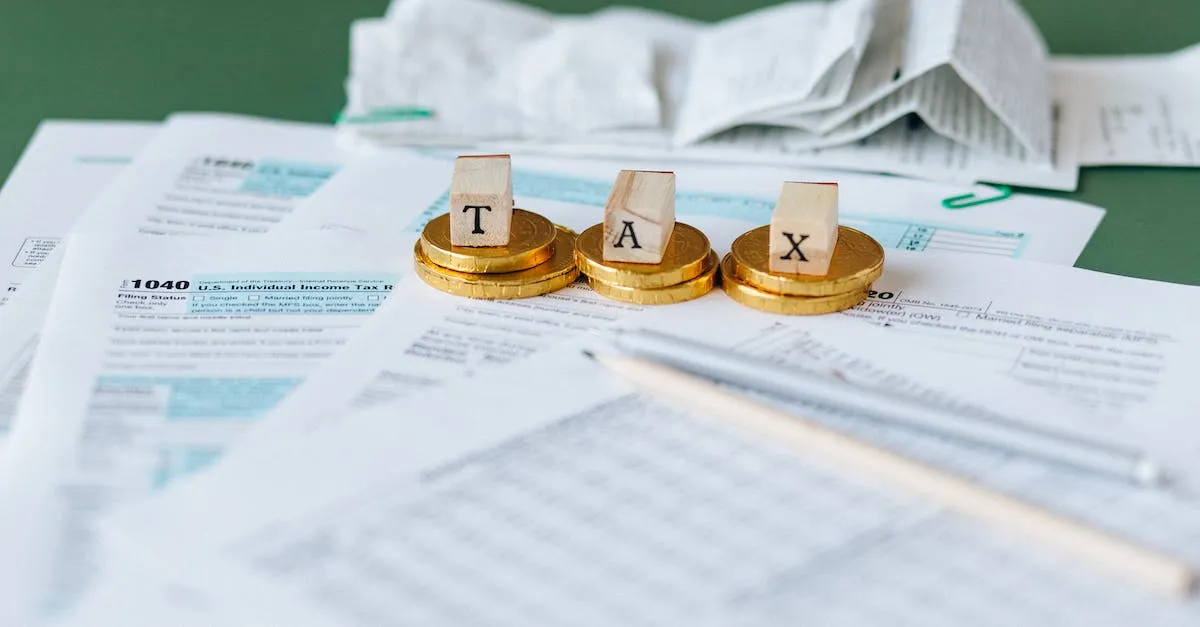Do Tourists Pay Tax On Vegas Winnings? A Detailed Guide
Winning big in Las Vegas can be an exhilarating experience. As the slot machines light up with your jackpot or the dealer pushes that giant pile of chips your way, your mind might jump right to how you’re going to spend all that cash.
If you’re short on time, here’s a quick answer to your question: Yes, tourists do have to pay taxes on gambling winnings in Las Vegas. Any winnings over $1,200 from slot machines, poker tournaments, or other casino games are reported to the IRS and you’ll need to pay federal taxes. Nevada does not have a state income tax.
In this comprehensive guide, we’ll go over everything you need to know as a tourist about paying taxes on your Las Vegas gambling winnings. You’ll learn about federal reporting requirements, how taxes are withheld, Nevada state taxes, calculating how much tax you owe, and strategies to reduce your tax bill.
Federal Reporting Requirements for Gambling Winnings
When it comes to gambling winnings in Las Vegas, tourists may wonder if they have to pay taxes on their winnings. The answer is yes, but the reporting requirements vary depending on the amount won and the type of gambling activity.
Let’s take a closer look at the federal reporting requirements for gambling winnings.
Slot Machine Jackpots Over $1,200 are Reported
If you hit a big jackpot while playing a slot machine in Las Vegas and win over $1,200, the casino is required to report your winnings to the Internal Revenue Service (IRS). This means that you will receive a Form W-2G from the casino, and you need to report your winnings when filing your federal tax return.
It’s important to keep track of your gambling activities and the amount won, as failure to report your winnings could result in penalties and interest.
Table Game Winnings Over $600 May be Reported
When it comes to table games such as blackjack, roulette, or poker, the reporting threshold is slightly lower. If you win over $600 in a single session, the casino may report your winnings to the IRS. However, even if your winnings are below this threshold, it is still important to keep track of your gambling activities and report your winnings accurately on your tax return.
It’s better to be safe than sorry!
Winnings from Tournaments and Contests are Reported
Las Vegas is known for its exciting gambling tournaments and contests, and if you win a substantial prize, it will be reported to the IRS. Whether it’s a poker tournament, a slot tournament, or a blackjack competition, the casino will issue a Form W-2G if your winnings meet or exceed the reporting thresholds.
Even if you don’t receive a Form W-2G, it is still your responsibility to report your winnings on your tax return.
It’s important to note that these reporting requirements apply to both U.S. citizens and non-U.S. citizens. If you are a non-U.S. citizen visiting Las Vegas and win a significant amount of money, you may be subject to withholding taxes.
The casino will withhold a portion of your winnings and provide you with a Form 1042-S, which you can use to claim a refund of the withheld taxes.
For more information on the federal reporting requirements for gambling winnings, you can visit the official website of the IRS at www.irs.gov. It’s always a good idea to consult with a tax professional to ensure that you are in compliance with the tax laws and reporting requirements.
How Taxes Are Withheld on Vegas Winnings
When it comes to winning big in Las Vegas, it’s important to understand how taxes are withheld on your winnings. While many people dream of hitting the jackpot and walking away with a life-changing sum of money, it’s crucial to be aware of the tax implications that come with your big win.
This guide will provide you with a detailed understanding of how taxes are withheld on Vegas winnings.
Taxes Withheld on Slot Jackpots
If you’re lucky enough to hit a slot jackpot in Las Vegas, you’ll need to be prepared for taxes to be withheld from your winnings. The Internal Revenue Service (IRS) requires casinos to withhold taxes on any slot jackpot of $1,200 or more.
This means that if you win $1,200 or more on a slot machine, the casino will automatically withhold 24% of your winnings for federal taxes. However, if you provide a valid taxpayer identification number, such as your Social Security number, you may be able to avoid immediate withholding of taxes.
Taxes on Table Game Winnings
While taxes are generally not withheld on table game winnings in Las Vegas, it’s still important to report your winnings to the IRS. If you win big at a blackjack table or have a lucky streak at the roulette wheel, you are responsible for reporting your winnings as income on your federal tax return.
It’s important to keep accurate records of your gambling activities, including wins and losses, as the IRS may request documentation if you are audited. It’s recommended to consult with a tax professional to ensure you comply with all tax obligations related to your table game winnings.
Taxes on Tournaments and Contests
If you participate in tournaments or contests in Las Vegas and win a significant prize, you may be subject to taxes on your winnings. The IRS considers tournament winnings as taxable income, regardless of whether you are a U.S. resident or a non-resident.
It’s important to note that the casino or organization hosting the tournament may withhold taxes from your winnings, depending on the amount won. If taxes are not withheld, it is still your responsibility to report the winnings and pay any applicable taxes when filing your tax return.
Nevada State Taxes on Gambling Winnings
When it comes to gambling winnings, Nevada has some unique tax laws in place. Unlike many other states in the US, Nevada does not impose a state income tax on gambling winnings. This means that tourists visiting Las Vegas and other cities in Nevada do not have to worry about paying state taxes on their winnings.
No State Income Tax
Nevada is known for its vibrant and bustling casino industry, which attracts millions of tourists each year. One of the reasons why the state has become a popular destination for gambling is its favorable tax laws.
The absence of state income tax on gambling winnings makes it an attractive option for both casual gamblers and high rollers.
Federal Tax Obligations
While Nevada does not impose state taxes on gambling winnings, it’s important to note that federal taxes still apply. The Internal Revenue Service (IRS) views gambling winnings as taxable income, regardless of the state in which they were won.
Therefore, tourists who strike it lucky in Las Vegas are required to report their winnings on their federal tax returns.
It’s worth mentioning that the IRS requires individuals to report all gambling winnings, regardless of the amount. However, it also allows taxpayers to deduct their gambling losses, up to the amount of their winnings.
This means that if a tourist wins $5,000 but loses $4,000, they would only need to report the net winnings of $1,000 on their federal tax return.
Professional Gamblers
For individuals who make a living through gambling, such as professional poker players, the tax laws can be slightly different. The IRS considers professional gamblers to be engaged in a trade or business, which means that their gambling income is subject to self-employment tax.
Professional gamblers are required to report their winnings and losses on Schedule C, which is used for reporting business income and expenses. They can also deduct their gambling-related expenses, such as travel and accommodations, as business expenses.
It’s important for professional gamblers to keep detailed records of their winnings and losses, including receipts and documentation, to support their tax filings.
For more detailed information on tax obligations for gambling winnings, it is always advisable to consult with a tax professional or visit the official website of the IRS at www.irs.gov.
Calculating the Tax You Owe on Gambling Winnings
When it comes to gambling winnings, it’s important to understand how taxes come into play. In the United States, gambling winnings are considered taxable income and must be reported to the Internal Revenue Service (IRS).
This applies to both U.S. citizens and non-resident aliens, including tourists visiting Las Vegas.
Federal Income Tax Brackets
The amount of tax you owe on your gambling winnings depends on your total taxable income for the year. The IRS uses a progressive tax system, which means that as your income increases, so does your tax rate. The federal income tax brackets for 2021 are as follows:
- 10% for income up to $9,950
- 12% for income between $9,951 and $40,525
- 22% for income between $40,526 and $86,375
- 24% for income between $86,376 and $164,925
- 32% for income between $164,926 and $209,425
- 35% for income between $209,426 and $523,600
- 37% for income over $523,600
It’s important to note that these tax brackets apply to your total taxable income, which includes not just your gambling winnings but also any other sources of income you may have.
Deductions to Reduce Your Taxable Winnings
While you do have to pay taxes on your gambling winnings, there are certain deductions that can help reduce the amount of taxable income. One of the most common deductions is the standard deduction, which is a set amount that you can subtract from your total income.
In addition to the standard deduction, you may also be eligible for other deductions, such as itemized deductions or specific gambling-related deductions. These deductions can include gambling losses up to the amount of your winnings, as long as you have proper documentation to support your claims.
It’s important to consult with a tax professional or use tax preparation software to ensure that you are taking advantage of all the deductions you qualify for and accurately reporting your gambling winnings.
For more information on federal income tax brackets and deductions, you can visit the official IRS website at www.irs.gov.
Strategies to Reduce Your Tax Bill on Vegas Winnings
When it comes to winning big in Las Vegas, it’s important to consider the tax implications. While casinos are required to report large winnings to the IRS, there are strategies you can employ to potentially reduce your tax bill. Here are some effective strategies to consider:
Offset Wins and Losses
One way to reduce your tax bill on Vegas winnings is to offset your wins with your losses. The IRS allows you to deduct your gambling losses up to the amount of your winnings. For example, if you won $5,000 but also incurred $3,000 in losses, you can deduct the $3,000 from your winnings, resulting in a taxable amount of $2,000.
This can significantly lower your overall tax liability.
Claim Gambling Losses
If you itemize your deductions on your tax return, you can claim your gambling losses as a miscellaneous deduction. However, it’s important to note that you can only claim losses up to the amount of your winnings.
Keeping meticulous records of your wins and losses, including receipts, can be crucial when claiming these deductions. Consult with a tax professional to ensure you are properly documenting and claiming your gambling losses.
Donate a Portion of Your Winnings
Another strategy to consider is donating a portion of your winnings to a qualified charitable organization. By doing so, you may be eligible for a tax deduction. It’s important to research and choose a reputable charity that aligns with your values.
Consult with a tax professional to understand the specific guidelines and requirements for claiming charitable deductions related to gambling winnings.
It’s worth noting that tax laws can be complex and subject to change. Consulting with a tax professional or visiting the IRS website (www.irs.gov) can provide you with the most up-to-date and accurate information regarding your specific situation.
Conclusion
Hitting a big jackpot or coming home with a suitcase full of cash from a poker tournament can be life-changing. Just don’t let the tax implications take you by surprise. Understanding the reporting requirements and planning ahead with the strategies discussed above can help you maximize how much of your winnings you actually get to keep.
The bottom line? Yes, tourists do have to pay federal taxes on gambling winnings over certain thresholds in Las Vegas. But with some preparation, you can reduce how much you owe and avoid any nasty surprises when tax season rolls around.








